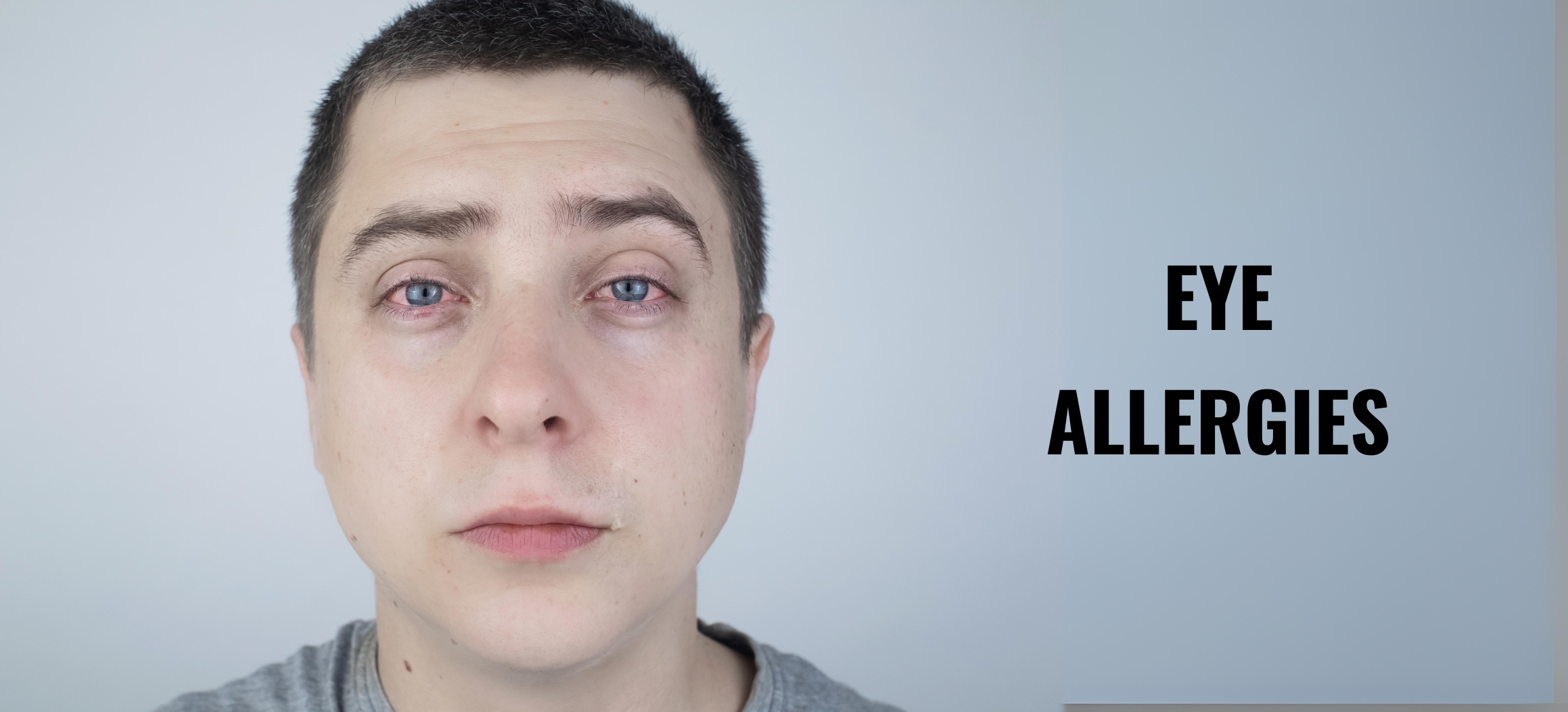
What is Eye Allergy?
Eye allergies, often referred to as allergic conjunctivitis, affect millions of people worldwide, causing uncomfortable symptoms like itchy eyes, watery eyes, and even swollen eyes. The eyes are highly sensitive to allergens, and recognizing the symptoms early can help in managing this condition effectively. Whether it’s a seasonal occurrence or a year-round problem, understanding the causes, symptoms, and treatment options is crucial for finding effective eye allergy relief.
Introduction to Eye Allergies: What You Need to Know
Eye allergies, also known as allergic conjunctivitis, occur when the eyes have an allergic reaction to substances like pollen, pet dander, or dust mites. These allergens cause the eyes to become inflamed, leading to itchy eyes, watery eyes, and sometimes swollen eyes. Unlike pink eye caused by an infection, allergies and pink eye related to allergens are not contagious but can be just as bothersome. It’s essential to understand the difference between the two and recognize the specific symptoms of an allergic reaction in the eyes.
Types of Eye Allergies: A Comprehensive List
Several types of eye allergies can trigger itchy eyes and other uncomfortable symptoms. Knowing which type you are dealing with is crucial for effective management.
Seasonal Allergic Conjunctivitis (SAC) is the most common form of allergic eye disease, triggered by pollen during specific times of the year. People with SAC typically experience itchy eyes, watery eyes, and redness during spring or fall.
Perennial Allergic Conjunctivitis (PAC), on the other hand, occurs year-round and is caused by indoor allergens such as dust mites and pet dander. Symptoms can persist throughout the year, making it harder to find eye allergy relief.
Vernal Keratoconjunctivitis (VKC) is a more severe form of allergic conjunctivitis that primarily affects children and young adults, particularly males. Symptoms include severe itchy eyes and swollen eyes, and in some cases, damage to the cornea.
Atopic Keratoconjunctivitis (AKC), another severe form, is associated with skin conditions like eczema. AKC often leads to itchy eyes, chronic redness, and inflammation.
Contact Lens-Induced Allergies can result from the buildup of allergens on the lenses, leading to discomfort, watery eyes, and even swollen eyes.
Giant Papillary Conjunctivitis (GPC) is typically caused by the long-term use of contact lenses. The irritation leads to large bumps on the inside of the eyelids, causing itchy eyes and a gritty feeling in the eye.
Common Symptoms of Eye Allergies
Common symptoms of eye allergies include itchy eyes, watery eyes, redness, and sometimes swollen eyes.
In more severe cases, you might also experience sensitivity to light, blurry vision, or a burning sensation. These symptoms are often bilateral, affecting both eyes simultaneously, and may also be accompanied by nasal symptoms like sneezing or a runny nose. If you are experiencing these symptoms, it’s likely you are dealing with an allergic reaction in the eyes.
What Causes Eye Allergies?
The primary cause of eye allergies is exposure to allergens such as pollen, pet dander, dust mites, or mold spores. When these allergens come into contact with the surface of the eyes, they trigger an immune response, releasing histamines that cause itchy eyes, watery eyes, and other uncomfortable symptoms.
Certain environmental factors like smoke, perfumes, and pollution can exacerbate these symptoms. Additionally, individuals who wear contact lenses may be more prone to allergic conjunctivitis due to the buildup of allergens on the lenses.
How to Differentiate Between Eye Allergies and Other Eye Conditions
It can be challenging to differentiate eye allergies from other eye conditions like dry eyes or pink eye. While both allergies and pink eye can cause itchy eyes and redness, allergies and pink eye caused by infection differ in terms of discharge and crusting. Allergies typically cause watery discharge, whereas pink eye caused by bacteria or viruses often involves thicker discharge. If your symptoms persist or worsen, consult an eye care professional to rule out other conditions like infections or dry eyes.
At-Home Remedies to Relieve Eye Allergy Symptoms
There are several at-home remedies that can provide eye allergy relief. Applying cold compresses can help reduce swollen eyes and alleviate discomfort. Artificial tears can help flush allergens from the eyes, reducing symptoms like itchy eyes and watery eyes. Avoid rubbing your eyes, as this can worsen the inflammation. Keeping your windows closed during high-pollen seasons and using air purifiers indoors can also help minimize exposure to allergens.
Medical Treatments for Eye Allergies
If at-home remedies do not provide sufficient eye allergy relief, medical treatments are available. Over-the-counter antihistamine eye drops can help manage itchy eyes and other symptoms. In more severe cases of allergic conjunctivitis, prescription eye drops containing corticosteroids may be recommended to reduce inflammation. Oral antihistamines can also help if you have systemic allergy symptoms in addition to eye allergy symptoms. For contact lens wearers, switching to daily disposable lenses may help reduce the risk of contact lens-induced allergies.
How to Prevent Eye Allergies?
Preventing eye allergies involves avoiding known triggers and minimizing exposure to allergens. If you suffer from seasonal allergic conjunctivitis, it’s best to stay indoors during high pollen seasons, particularly on windy days. Wearing sunglasses can help protect your eyes from allergens when outdoors. Regularly cleaning your home to reduce dust mites and pet dander is also important for preventing perennial allergic conjunctivitis. For individuals with contact lens-induced allergies, maintaining good lens hygiene and using preservative-free solutions can help prevent allergic reactions in the eyes.
When to See a Doctor for Eye Allergies?
Although eye allergies are generally manageable with over-the-counter treatments, it’s important to see a doctor if your symptoms are severe, persistent, or if you experience vision problems. Severe allergic conjunctivitis can sometimes lead to complications, including corneal damage. If your eye allergy symptoms are not relieved by typical treatments, or if you suspect your itchy eyes and watery eyes may be due to an infection, consult an eye care professional for further evaluation.
FAQ
In most cases, eye allergies do not cause permanent damage. However, severe or untreated cases, such as Vernal Keratoconjunctivitis or Atopic Keratoconjunctivitis, can lead to complications, including damage to the cornea.
The most common triggers for eye allergies include pollen, dust mites, pet dander, mold spores, and environmental irritants like smoke or perfumes. Contact lens wearers may also experience contact lens-induced allergies.
Yes, for severe cases of allergic conjunctivitis, prescription medications such as corticosteroid eye drops or stronger antihistamines may be necessary to manage symptoms like itchy eyes and watery eyes.
If you experience eye allergies, particularly contact lens-induced allergies, you may need to stop wearing your lenses temporarily or switch to daily disposables to reduce the risk of further irritation.
Categories
Company
Media
Follow Us
© Copyright Biotech /Terms Of Use - Privacy Policy
Version 2_CT_1212222
